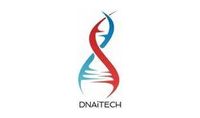

- Home
- Companies
- DNAiTECH Ltd
- Software
- DNAiTECH - Version Gen3 - Portable ...
DNAiTECH - Version Gen3 -Portable In-Field and Point-of-Care DNA Testing Software
DNAiTECH is advancing the field of in-field and point-of-care diagnostics with the development of innovative testing instruments. Their Gen3 platform, slated for release in 2024, aims to meet the World Health Organization`s ASSURED criteria, encompassing affordability, sensitivity, user-friendliness, and robustness, among other factors. This platform incorporates microfluidics and LAMP-CRISPR diagnostics, making it a sophisticated tool for rapid molecular diagnostics outside of conventional laboratory settings. Furthermore, in-field testing using isothermal amplification methods lowers instrumentation energy demands and simplifies DNA analysis, vital for environments with limited infrastructure. DNAiTECH`s technology holds promise for enhancing diagnostic capabilities in medical, environmental, and agricultural sectors, balancing high technical specifications with the need for accessibility in resource-constrained settings.
Why test for DNA at the Point of Care?
There are obvious benefits to be able to perform a DNA analysis immediately on-site when and where it is needed. For environmental testing, the terminology is in-field testing, for clinical concerns it is termed point-of-care testing or POCT. Such testing is indeed the holy grail of molecular diagnostics. Rapid verification of disease, infection, or contamination enhances the efficacy of first response, saving lives, preventing disease spread, enabling preemptive isolation of affected individuals or animals or diseased crops, providing an early warning when there are toxins or disease-causing pathogens present in the environment. Yet everyday molecular diagnostics require expensive instrumentation operated by technologists within specialized laboratory facilities; to deliver such tests outside the lab presents significant challenges.
W.H.O. guidelines for in-field POC testing?
Health solutions are disproportionately first world focused, the high costs of test development, and the economic imperatives favor a system where non-first world humanitarian health solutions are low priority. Technological solutions must also benefit the lives of those who live with extremes of poverty. To deliver an in-field test that can be used to benefit poor communities, where there is minimal infrastructure, requires demanding test specifications. The World Health Organisation defines the criteria for an ideal humanitarian POCT with the acronym ASSURED which stands for Affordable, Sensitive, Specific, User-friendly, Robust & Rapid, Equipment-free, and Deliverable[i]. The same criteria apply to critical in-field environmental testing and also for agritech applications.
Smartphones for DNA testing
DNA based diagnostics are powerful tools for in-field and POCT, and applicable for resource-limited situations if there is the availability of suitable portable low energy instrumentation, robust chemistries, and if the process is simple, user-friendly and data interpretation straight forward. Recent publications explore different ways to use mobile phone-based DNA sensors to reduce instrument complexity and cost for in-field POCT applications[i] [ii] [iii] [iv] [v].
Suitable chemistry for in-field DNA testing
The chemistry for amplifying the DNA or RNA are another key aspect for viable applications, it must be robust, cheap, and packaged in a way so it works without laboratory infrastructure and refrigeration. It is well established that isothermal DNA amplification chemistries are much more suitable for nucleic acid amplification than standard PCR thermocycling chemistries, the DNA amplifying enzymes are often less fussy as to the target DNA’s purity and the energy requirements for the instruments is much lower when amplification occurs at a single temperature[i].
DNAiTECH, an in-field capable package
DNAiTECH is developing a new generation of instruments for in-field and point of care diagnostics. Our current Gen2 instrument is a tube based system, our future technology revolves around the Gen3 instrument due for release in 2024. Gen 3 will fulfill all the ASSURED criteria and will be an innovative platform for diagnostics using microfluidics and incorporating LAMP-CRISPR diagnostics.
